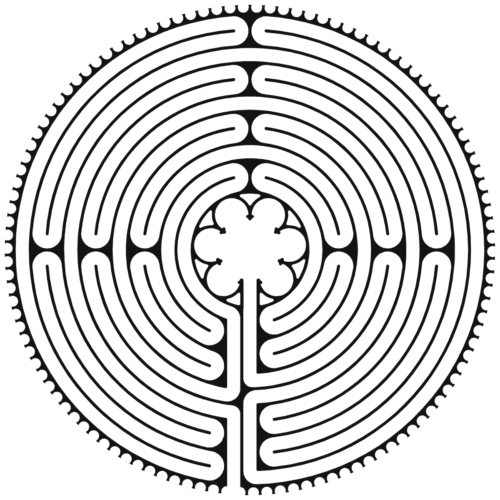Classic Controversies
Watkins, Michael D., and Max H. Bazerman. “Predictable Surprises: The Disasters You Should Have Seen Coming.” Harvard Business Review 81, no. 3 (2003): 72-85.
Environmental Governance
Jasanoff, Sheila, “Unsettled Settlements.” In Designs on Nature: Science and Democracy in Europe and the United States. Princeton: Princeton University Press, 2005.
Jasanoff, Sheila. “A New Climate for Society.” Theory, Culture & Society 27, no. 2-3 (2010): 233-253.
Expertise in Law and Science
Ahmed, Aziza. “Medical Evidence and Expertise in Abortion Jurisprudence.” American Journal of Law & Medicine 41, no. 1 (2015): 85-118.
Jasanoff, Sheila. “The Eye of Everyman: Witnessing DNA in the Simpson Trial.” Social Studies of Science, Vol. 28, No. 5-6 (1998): 713-740.
Jasanoff, Sheila. “What Judges Should Know about the Sociology of Science,” Jurimetrics, Vol. 32, No. 3 (1992): 345-359
Rule of Experts: Standards and their Failures
Busch, Lawrence. “The Private Governance of Food: Equitable Exchange or Bizarre Bazaar?” Agriculture and Human Values 28, no. 3 (2011): 345-352.
Busch, Lawrence. Standards: Recipes for Reality. Cambridge: MIT Press, 2011.
Busch, Lawrence, and Kyle Powys Whyte. “On the Peculiarity of Standards: A Reply to Thompson.” Philosophy & Technology25, no. 2 (2012): 243-248.
Danielsen, Dan. “Local Rules and a Global Economy: An Economic Policy Perspective.” Transnational Legal Theory 1, no. 1 (2010): 49-115.
Danielsen, Dan. “Trade, Distribution and Development Under Supply Chain Capitalism.” Globalization Reimagined: A Progressive Agenda for World Trade and Investment, ed. David Trubek, Alvaro Santos and Chantal Thomas, eds. (London: Anthem Publishing, 2019).
IGLP Law and Global Production Working Group. “The Role of Law in Global Value Chains: A Research Manifesto.” London Review of International Law 4, no. 1 (2016): 57-79.
Lampland, Martha, and Susan Leigh Star, eds. Standards and Their Stories: How Quantifying, Classifying, and Formalizing Practices Shape Everyday Life. Ithaca: Cornell University Press, 2009.
Thompson, Paul B. ““There’s an App for That”: Technical Standards and Commodification by Technological Means.” Philosophy & Technology 25, no. 1 (2012): 87-103.
Public Understanding and Democracy
Floridi, Luciano. “Artificial Intelligence, Deepfakes and a Future of Ectypes.” Philosophy & Technology 31, no. 3 (2018): 317-321.
Jasanoff, Sheila. “Civic Epistemology.” In Designs on Nature: Science and Democracy in Europe and the United States pp. 247-271. Princeton: Princeton University Press, 2011.
Suwajanakorn, Supasorn, Steven M. Seitz, and Ira Kemelmacher-Shlizerman. “Synthesizing Obama: Learning Lip Sync from Audio.” ACM Transactions on Graphics (TOG) 36, no. 4 (2017): 95.
Zakharov, Egor, Aliaksandra Shysheya, Egor Burkov, and Victor Lempitsky. “Few-Shot Adversarial Learning of Realistic Neural Talking Head Models.” arXiv preprint arXiv:1905.08233(2019).
Innovation, Risk and Responsibility
Miller, Clark A. “Interrogating the civic epistemology of American democracy: Stability and Instability in the 2000 US Presidential Election.” Social Studies of Science 34, no. 4 (2004): 501-530.
Miller, Clark. “Knowledge and Democracy: The Epistemics of Self-Governance.” In Science and Democracy: Making Knowledge and Making Power in the Biosciences and Beyond, pp. 198-219. New York: Routledge, 2015.
Miller, C., and T. A. Muñoz-Erickson. “Designing knowledge.” The Rightful Place of Science, Book Series; Arizona State University: Tempe, AZ, USA (2017).
Post-Truth Articles
Archer, Graeme. “Don’t Trust Third Parties or Courts or Fact-Checkers to Give Voters the ‘Truth’. They’re All Puppet Masters.” UnHerd. January 12, 2018.
Cohen, Roger. “An Era Without a Name.” New York Times, December 3, 2018.
Qiu, Linda. “Deciphering the Patterns in Trump’s Falsehoods.” The New York Times, January 4, 2019, sec.
The most valuable thing that I have learned this week is that despite the particularities of each case, there are general lessons to be learned across the board…These lessons, coupled with the STS frameworks presented at the beginning of the week, granted me the vocabulary to articulate my interpretation of my own case study.
Cierra, 2019 Participant


